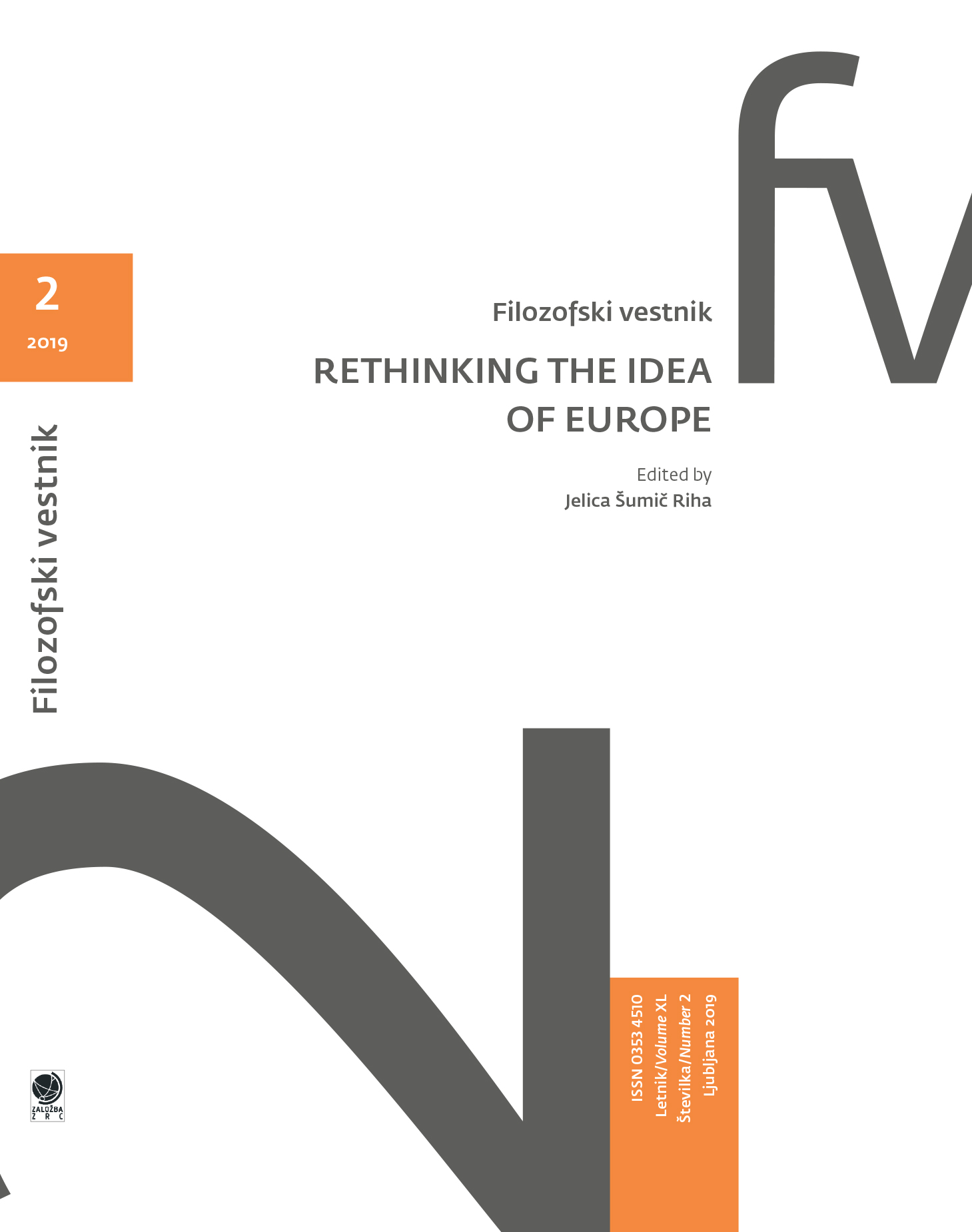Evropa: Politika mitologije
Ključne besede:
Evropa, mit o Evropi, mitologija, Feničani, semitizem, antisemitizem, kolonializem, Vzhod/Zahod, Evropa/AzijaPovzetek
Ko je mit o Evropi sprejet kot evropski utemeljitveni mit, postanejo vprašanja o izvoru in pomenu mita o Evropi in imena Evropa vprašanja o izvoru in pomenu Evrope. Ta vprašanja, ki nosijo s sabo velike teme o kulturni dediščini in rasnem izvoru, lahko zato postanejo ključnega pomena pri konstruiranju »evropske civilizacije«. Mit o Evropi deluje kot prizma, skozi katero gledamo svetovno zgodovino. Velja pa tudi, da svetovna zgodovina, kakor jo želimo videti, mesto, ki ga v njej dodelimo Evropi, in vrednotenje »evropske civilizacije«, ki ga sprejemamo, določajo interpretacije mita o Evropi in imena Evropa. Ta članek obravnava razprave med zgodovinarji antičnega sveta in mitologi v 19. in 20. stoletju, ki so se vrtele okrog izvora Evrope kot kulturno-politične entitete in kot mitskega lika, in se pri tem osredotoča na vprašanja morebitnega semitskega izvora mitske Evrope in »evropske kulture« oziroma »civilizacije« ter na meje Evrope. Politične motivacije in cilji tistih razprav so se artikulirali v kontekstu širjenja kolonializma in antisemitizma, vzpona nacizma in dveh svetovnih vojn.
Prenosi
Prenosi
Objavljeno
Kako citirati
Številka
Rubrike
Licenca
Avtorji jamčijo, da je delo njihova avtorska stvaritev, da v njem niso kršene avtorske pravice tretjih oseb ali kake druge pravice. V primeru zahtevkov tretjih oseb se avtorji zavezujejo, da bodo varovali interese založnika ter da bodo povrnili morebitno škodo.
Podrobneje v rubriki: Prispevki





